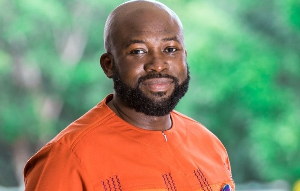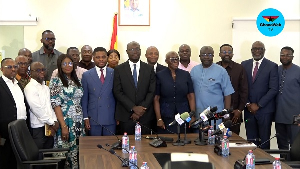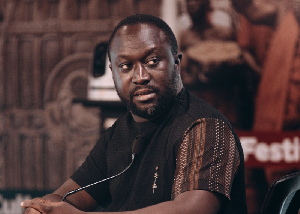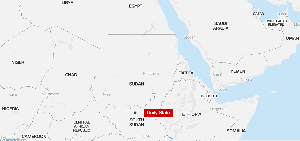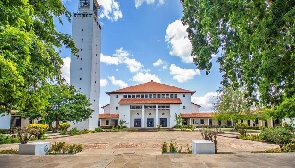If any Ghanaian took the news of our oil discovery with a pinch of salt, then perhaps, he is better off wishing for salt mines in Saltpond than waiting to harvest the proceeds from the liquid black gold-Ghanaoil. And you are not alone if you are not very sure of our capacity to effectively manage oil at this time; Dr Nii Moi Thompson, an eminent Ghanaian economist, also thinks so. So, the Member of Parliament who took a bowl of oil and a sachet of salt to the floor of the House, to joke that the P/NDC in its 19 year rule of Ghana could only manage to discover salt, did not give sufficient indication that the NPP would do anything better than the bowl of oil he had propped himself with. The NDC, methinks, might have taken the MP’s antics with a pinch of oil, to address his pinch of salt. A fine piece of political drama, don’t you think so?
This oil prospect is not a political thing; it is a national issue. President J.A Kufour was very wise to have made that clear to both sides of the political divide. Cocoa and gold have not failed us very much, but we are certainly in need of economic redemption. If that redemption comes in the form of oil instead of solid gold, then oil it will be. So let’s assume cocoa has been a time waster and think of making a fine Nigeria out of Ghana. Nigeria out of Ghana, did I hear you say Kweakai? Or perhaps Angola, in which case Nigeria may be better. These countries and others in Africa, who have oil in commercial quantities, have become cases of accidental management.
Fortunately, few or perhaps, none of the presidents in Africa over the last forty years have Peter as their first name, but they have all become victims of the Peter Principle. The principle, invented by Dr Laurence Peter of the University of Southern California, states that people who excel in an activity are usually promoted to undertake big tasks until they are confronted with a task they can’t perform. That is only when you see that they have been managers by accident all along. And by their nature, accidental managers struggle through their tasks, never sure why they are struggling or underperforming.
Where we haven’t fallen victim to the Peter Principle, we have tried to behave like Simon Peter, disciple of Jesus Christ: pretending to know everything until the quiz at the eleventh hour. That is why, if you have observed, we needlessly disown or pull each other down at the least opportunity, just like how disciple class prefect Peter disown Master Jesus in the run up to the crucifixion.
The problem with oil management in Africa is that, they are managed by opportreneurs-opportunistic entrepreneurs instead of politicians with an entrepreneurial know how. Pop over to nearby Nigeria and see how an OPEC member country has made a sad odyssey out of that country’s abundant oil resources. Poor Nigerians struggle and scramble for spilling oil whenever lorry tankers carrying oil are involved, or rather are made to be involved in accidents. Very often, they are overpowered by the power of the ensuing flames, and they die in their hundreds. Onlookers are not intimidated by the charred remains of their greedy brothers and sisters; they plan how best to steal next time, to avoid being burnt. The result is that, it is not unusual to see vehicles queuing for oil in oil rich Nigeria. So, Africa’s populous nation lacks nearly everything in the midst of plentiful resources, because of this form of accidental management.
The effect is that, today British banks are wary of Nigerian customers. But in the 1980’s you could use the Nigerian Naira in Britain without problems. So African politicians now prefer to convert their money into foreign currency and transport it to foreign banks while their countrymen cook recycled bones for dinner. When they don’t stash their loot in a foreign bank, they flaunt it locally with careless abandon. King Nswati II of Swaziland found reason to import ten Custom-made 7 series BMW cars for his wives, and splash nearly £600,000 on his 35th birthday recently.
Examples of political opportreneurs abound in Africa, and that is why that continent is today tied, inescapably, to the apron strings of Bretton Woods. So the ruled survive on less than a dollar a day while their accidental managers live in stupendous luxury. Just last month, a London High Court found former Zambian president, Frederick Chiluba, guilty for shamelessly plundering half of $46m of his people’s money with the help of Nelson Mandela’s personal lawyer, Igbal Meer. In what the prosecution described as ‘‘the flagship corruption case for sub-Saharan Africa’’, the judge told of ‘‘Chiluba’s $500,000 purchase of hundreds of suits and monogrammed shirts from exclusive boutiques in Switzerland, as well as 72 pairs of handmade, high heel shoes to extend his 5ft stature.’’ But how much of all these is recoverable?
In Ghana, we have had our own version of accidental management. What happened to the President Initiated model projects that were under the supervision of PSI Minister and presidential aspirant Allan Kyeremanteng? Did those projects provide any good examples? Have we managed other sensitive sectors of our economy well enough? How has the golden age of business pan out so far?
Not that there are no accidental managers in the western world; they do have their versions of moral and financial corruption, sometimes in unbelievable ways. But that should not worry us, because they live in relative luxury and can afford it. We in Africa are in a terrible situation: We need to build more public toilets, create jobs, provide affordable housing for people living in chalets, pay huge external debts with interest, find cure for AIDS, feed the hungry in our towns and villages and provide sustainable electricity supply. We cannot afford to manage any of these accidentally if vision 2020 is not a mirage.
If the oil, which we hear is in significant quantities, is managed properly, Ghana will be a fine place to live. And already people are celebrating over the news, as if this piece of news is new. In the Kutu Acheampong era, we made lots of hay about a supposed oil discovery, but we came back to our gold and cocoa. But this time, there is a feeling of purpose in the euphoria; it seems to be a serious discovery which will help us very much. There is the feeling of Ayeyie awie in the air. The 60 year old Ghanaian-British, who lives next door tells me that my generation is lucky to have found oil. If Ghana had found oil when he was my age, he wouldn’t have bothered to come to labour in London. He said this with an all-consuming conviction, as if there are no Nigerian graduates washing plates and cleaning floors in the UK.
You see, the trouble with oil is that, it is in the liquid form, and you always have to work extra to prevent it from spilling. So is the management of oil and its prospects. The lifting and the processing could be very expensive. Sometimes, it doesn’t do better than cocoa or gold. In fact, if it is accidentally managed, it would bring a lot of TOR: Theft of Revenue. Whatever happened to that one, too?
So, who is going to manage the liquid black gold? Economist Monsieur Thompson says we don’t have the capacity to manage it profitably. So what do we do? Do we send folks to Norway to learn from their oil success or cross over to Nigeria to see where they went wrong, so that we can avoid their mistakes? I can tell you the answer in one word: Tradition. The way we do things would have to change. If we bring Norwegians down to manage the oil for us, and the locals who would supervise the transfer of technical expertise do a replay of the Juliet Cotton rice or the Osafo-Maafo Macmillan economic cantata, we would end up exporting perfumed urine as oil. On the other hand, if we do things properly, Ghana will see a rebirth of spring under our bright steps. At least, we could avoid importing tomato paste and matches.
If we don’t change the way things are done presently, nothing will change in oil rich Ghana. You don’t need to look any further to see how some opportreneurs in law enforcement agencies are making gains out of white gold-cocaine. If people whose brains have been oiled to make money in this diabolic way get nearer oil, they will siphon it through their stomachs into their vehicles. There seems to be a shocking degree of greed in our nature. And our nurture doesn’t seem to have helped it very much. Almost every Ghanaian abroad has a terrible story to tell about the treatment they received from fellow Ghanaians in their early years. Other nationals do not mistreat one another the way we do when they find themselves in a foreign land.
The CPP economist also bemoaned the disbursement of the $20m Ghana@50 lump sum meant for the anniversary festivities. He opined that a person who would mismanage $20m would not usually have the wisdom to work with $20b. Well, that doesn’t sound like a farce to me, does it? What is farcical, perhaps, is the big figure spent on the historic celebration, when less than half would have done us fine. This, too, is not a political issue; it is very much a national affair, and it ought to be treated as such. It is refreshing that the discovery of oil happened the year we were 50. It wouldn’t be difficult to look back 50 years on and judge for ourselves how we did.
The good thing about this oil discovery is that, a regime change would not detract from its fortunes. Well, at least not in the short term. It seems to have a unifying twist to it all. Even the born again pessimists are happy about it. What we all wait to see is what becomes of it. Are we about becoming comfortable at long last or it is only the beginning of discomfort packaged in barrels of oil. That will be a pinch of oil indeed.







